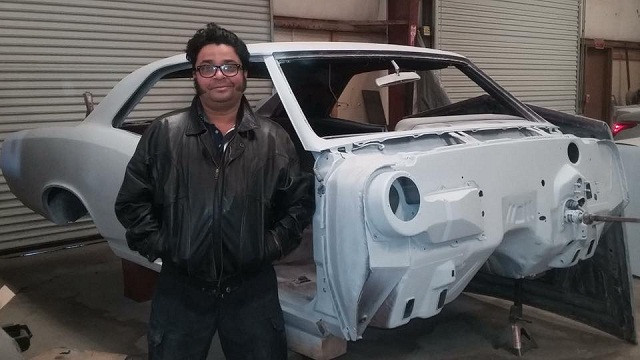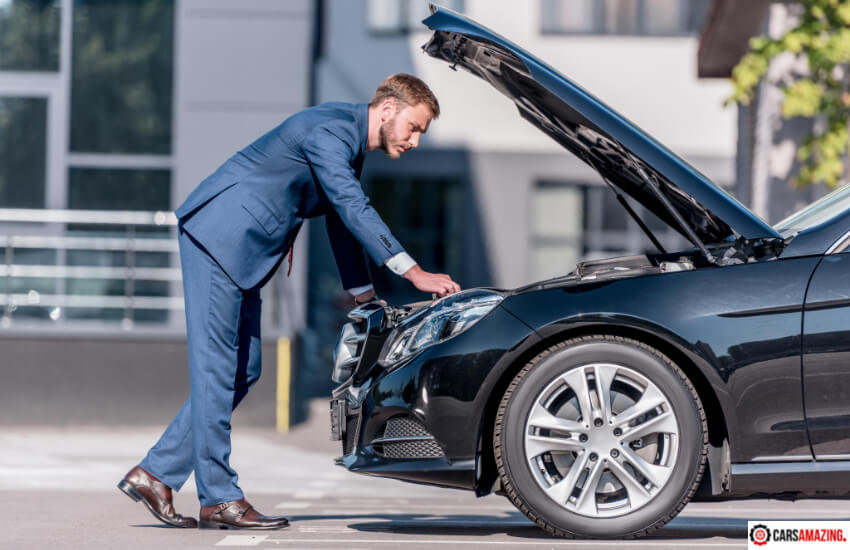Last Updated on February 6, 2023 by Leepu Da Maxim
The problem of dragging cars and jerking cars is not a rare phenomenon for many car owners. It usually happens when you have started a car at a high speed, done a sudden brake, or hit a foreign object. It is also common in some models of cars.
Key Takeaways
- A clogged fuel filter or a failing fuel pump is a very common problem for dragging and jerking of a car
- Ignition system issues will cause misfires and you will experience the dragging and jerking problem
- If a car is dragging, then the reasons could be break problem, suspension problem, tire problem, engine problem, etc.
- Misaligned wheels can create the dragging problem
Why Car Dragging And Jerking Happens?
When you start a car at a high speed, the inertia force generated by the engine is enormous. Even if you immediately release the gas pedal, the inertia of the engine may cause it to continue running for 0.5 – 1 second. During this period of time, if you suddenly brake or hit something, the inertia force will make the car move forward with great force. The engine is still trying to drive the wheels forward which are already locked up by brakes. The wheels are not able to stop the vehicle. Therefore, the car will keep moving forward and dragging the steering wheel with it.
Reasons Of Why Your Car Is Dragging

1. The car is too heavy
Your vehicle may be loaded with too much weight. The weight of a vehicle slows it down which causes a drag on the engine and makes it laborious to accelerate. If you need to carry something, place it in the trunk or on the roof of the car. Lifting heavy objects can also result in your vehicle being more sluggish so avoid this kind of work as best as possible.
2. You have a flat tire.
The condition of your tires can affect how well your vehicle moves so monitor their condition closely and replace them if necessary. If you have a flat tire, then you need to replace that tire as soon as possible because driving with one flat tire can cause damage to other parts of your car.
3. Car needs a tune-up
Car owners can easily identify when their car needs a tune-up in order to solve car dragging and jerking. When the engine has not been tuned up in years, it often starts to drag or jerk. This is when the driver will feel their foot on the gas pedal but the car will not react accordingly. Tune-ups are an easy fix for this issue, so if you notice your car starting to have these symptoms, get them fixed before they become a problem.
4. Oil is low
New research has shown that there are alternatives to help solve the problem of dragging and jerking in cars. One solution is the use of heavy oil, which can be put in the engine to give off lubricating substances. It will provide protection for all the moving parts inside the engine, thus minimizing wear and tear.
5. Ignition is misfiring
Ignition problems can easily ruin your day, but don’t lose hope. Sometimes all you need to do is replace the old spark plugs with new ones. Other times, you may need to replace the ignition coil or even the entire ignition system.
6. You need a new air filter
Your car has an air filter that helps direct air into the engine. If the air filter becomes clogged, this can cause your car to drag or jerk. You may even hear a whistling sound when you accelerate. This is because the pressure inside the engine is too high for your vehicle’s tires to grip smoothly on the road. Your best bet is to invest in a new filter before something worse happens.
7. Dirty fuel filter or dirty fuel tank
If you experience a car dragging and jerking, this may be caused by a dirty fuel filter or a dirty fuel tank. A dirty fuel filter can cause your car to consume more gas than it needs and have problems accelerating. A dirty fuel tank, on the other hand, will cause your engine to sputter while driving and jerk back when you let go of the gas pedal.
8. Vacuum leak in the EVAP system
Your car is dragging and jerking because of a vacuum leak in the EVAP system. A vacuum leak in the EVAP system is generally caused by a faulty fuel filler cap, which can be replaced with the help of your local car technicians.
9. Faulty PCV valve or cracked intake manifold gasket
A faulty PCV valve or cracked intake manifold gasket can lead to an imbalance in pressure between the air intake and the engine. This can cause a car to drag or jerk when accelerating, especially at low speeds.
10. Injectors may be leaking, faulty, or clogged with foreign particles from old gas or contaminated oil/coolant mixture from an external source such as a leaky engine gasket or sealer from the cooling system that has contaminated the engine oil and/or coolant supply line to the injectors and/or intake manifold gasket(s) and/or head gaskets and so on…
11. The car is equipped with a manual transmission, and the clutch is dirty or slipping.
12. The car has a worn-out brake system.
13. The car has a defective drive shaft, which is the part of the drive train that links to the wheels on one side of the vehicle.
14. A shock absorber may have become defective or worn out over time and needs to be replaced.
Conclusion
This article has provided you with a few different possible solutions to fix your car dragging and jerking issues. Always make sure you get the vehicle checked by a qualified mechanic before you put in any work.
The problem with the car was likely caused by a faulty engine belt slipping. The most reasonable solution for this would be to replace the engine belt. After checking the differential fluid, you may often find that the car was low on oil. I added oil to the car and the car has not dragged or jerked since.
References:
https://www.motorverso.com/car-jerks-when-accelerating/

Hi, I’m Leepu Da Maxim, a dedicated car enthusiast with over 10 years of experience in this field, and I’m thrilled to share my passion and expertise with fellow car enthusiasts like you. My journey began in my hometown West Jordan, Utah, where my fascination with the mechanics and design of cars sparked at a young age. Over the years, this passion has evolved into a commitment to providing accurate, insightful, and engaging information about all things automotive through CarsAmazing.
